gallup
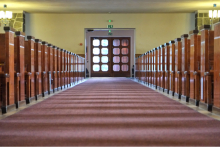
I believe the church is a critical and indispensable — though not exclusive — vehicle for sharing the good news and advancing God’s beloved community here on Earth. But last week, Gallup caused a stir when it released new research on the trends in Americans’ membership in houses of worship, which fell below 50 percent for the first time in the 80 years.

China is experiencing “one of the great religious revivals of our time,” Johnson writes. “Across China, hundreds of temples, mosques, and churches open each year, attracting millions of new worshippers. … Faith and values are returning to the center of a national discussion over how to organize Chinese life.
“This is not,” he continues, “the China we used to know.”
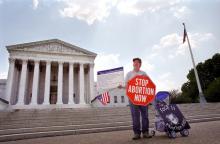
Despite Americans’ shifting opinions on a range of moral and ethical issues, abortion foes have been encouraged by numbers showing that opposition to abortion rights appeared to have resisted serious slippage, and was even gaining traction.
But a Gallup poll released May 29 shows that may be changing: 50 percent of all Americans now identify as “pro-choice,” the first statistically significant lead over the “pro-life” label, which came in at 44 percent, since 2008.
The data suggest this could signal an end to the seesaw battle that has characterized opinions on abortion over the past few years.

Reading religion surveys can seem like confronting the Tower of Babel: stacked questions, confusing terms, unscientific methodology.
It gets even crazier when results are contradictory. How does that happen?
Some surveys lean like the Tower of Pisa
The Pledge of Allegiance is a perfect example.
There’s almost always a flap over how many Americans do — or don’t — want the words “under God” kicked out of the Pledge of Allegiance. Indeed, on Nov. 19 a court in Monmouth, N.J., will hear the case of the American Humanist Association battling the Matawan-Aberdeen Regional School District to have schools edit out mention of God.
The humanists claim 34 percent of Americans agree with their view. But, wait. What about a survey conducted earlier this year by LifeWay Research, a Christian research agency? It found that only 8 percent would cut God from the Pledge.
Why four times the difference? Look to the poll language.
LifeWay asked: “Should the words ‘under God’ be removed from or remain in the Pledge of Allegiance to the United States of America?” That’s a straight-up question with no preface.
The humanists’ survey, however, began with a bit of pointed Pledge history — before getting to the (loaded) question:
“For its first 62 years, the Pledge of Allegiance did not include the phrase ‘under God.’ During the Cold War, in 1954, the phrase ‘one nation, indivisible … ‘ was changed to read ‘one nation, under God, indivisible … ‘. Some people feel this phrase in our national pledge should focus on unity rather than religion.

The U.S. Supreme Court is expected to finally issue its ruling this week in the highly anticipated case of the craft companies vs. Obamacare.
Technically, it’s Sebelius v. Hobby Lobby and Conestoga Wood Specialties, a showdown over the Affordable Care Act’s contraception coverage mandate. The core legal question is whether a private company can have religious rights.
But to the general public, this is seen as a showdown between employers — the evangelical Green family behind Hobby Lobby and the Mennonite Hahn familythat owns the Conestoga cabinet company — and the employees’ personal reproductive choices under their insurance.
While conservatives have cast the battle as one for religious freedom, the general public may see it as a showdown over personal health choices.
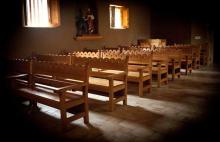
Merry what? Just in time for Christmas, new statistics show “no religion is the new religion” in Great Britain, according to a study released Monday.
The study, by Westminster Faith Debates, finds 38 percent adults in Great Britain, and 48 percent of those ages 18 to 29, checked no religion in online surveys conducted in January and June by YouGov.
These numbers fall midway between the findings of two other British studies that both show a trend away from the pews.
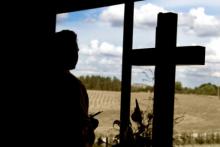
Clergy used to rank near the top in polls asking Americans to rate the honesty and ethics of people in various professions. This year, for the first time since Gallup began asking the question in 1977, fewer than half of those polled said clergy have “high” or “very high” moral standards.
But opinions on clergy differed markedly by party, with Republicans viewing them far more favorably than Democrats.
Overall, 47 percent of respondents to the survey gave clergy “high” or “very high” ratings, a sharp drop in confidence from the 67 percent of Americans who viewed them this way in 1985.
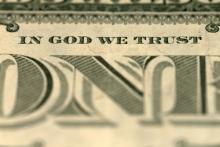
The economy continues to weigh on pastors, with a new survey showing that nearly two-thirds say it has affected their churches negatively.
LifeWay Research asked 1,000 pastors about the economy’s effect on their churches and found that 56 percent described it somewhat negatively and 8 percent very negatively. Nine percent reported a positive effect on their churches and one-quarter said the economy was having “no impact on my church.”
“Pastor views on the economy are similar to many economic outlook surveys,” said Scott McConnell, director of LifeWay Research, which is affiliated with the Southern Baptist Convention. “We weren’t surprised the current perspective of economic impact on churches is predominantly negative.”
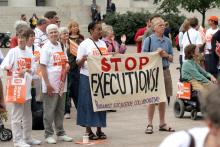
The campaign to abolish the death penalty has been freshly invigorated this month in a series of actions that supporters say represents increasing evidence that America may be losing its taste for capital punishment.
As early as this week, Gov. Dannel Malloy, a Democrat, is poised to sign a bill repealing the death penalty in Connecticut. A separate proposal has qualified for the November ballot in California that would shut down the largest death row in the country and convert inmates' sentences to life without parole.
Academics, too, have recently taken indirect aim: The National Research Council concluded last week that there have been no reliable studies to show that capital punishment is a deterrent to homicide.